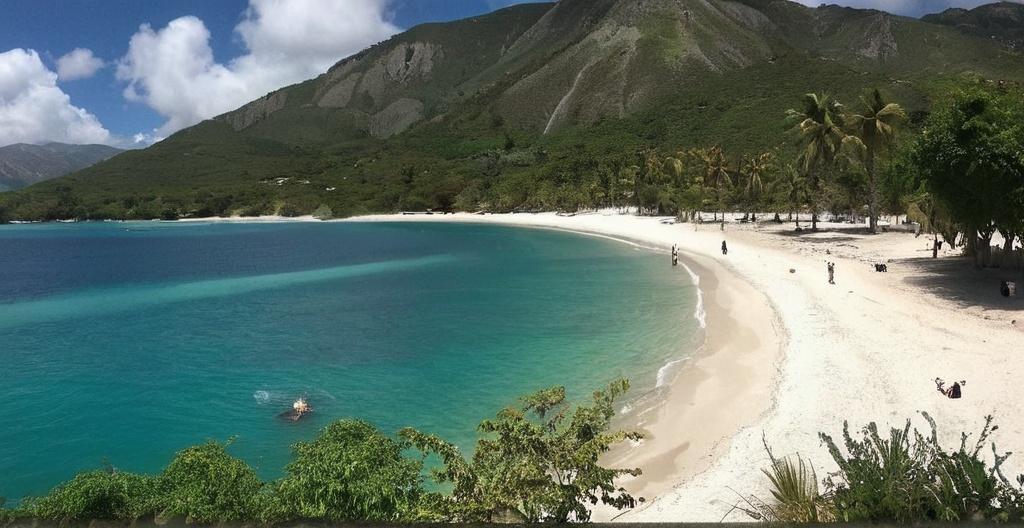Key Take Aways About Availability of medical services
- Haiti’s healthcare infrastructure is limited; travel insurance is advisable.
- Different medical facilities: public hospitals (overcrowded), private clinics (costly), and community health centers (basic care).
- Challenges include limited access in rural areas, healthcare professional shortages, and inconsistent medication supply.
- Travelers should bring a first-aid kit, necessary medications, and get recommended vaccinations.
- Emergency medical care may face language barriers; 116 connects to emergency services.
- International NGOs provide crucial healthcare support in Haiti.

Overview of Medical Services in Haiti
Visiting Haiti, a country known for its stunning scenery and vibrant culture, offers a unique experience to travelers. Yet, when it comes to medical services, it’s crucial to know what to expect. Haiti’s healthcare system has been developing over the years but still faces numerous challenges. Recognizing the current state of medical services in Haiti can be a game-changer for anyone planning a trip there.
Healthcare Infrastructure
Haiti’s healthcare infrastructure is modest and can often seem like a patchwork quilt. While there are hospitals and clinics, many of them operate with limited resources. The public system is often stretched thin, leading to longer wait times and sometimes not the most stellar conditions. Private clinics might provide more comprehensive care, but they come at a cost. It’s worth considering travel insurance that covers medical emergencies before stepping foot in the country.
Types of Medical Facilities
Within Haiti, there are various types of medical facilities, each providing different levels of care. These include:
- Public Hospitals: These are government-run and are the primary source of care for many Haitians. However, they are often overcrowded and under-resourced.
- Private Clinics: Offering more personalized care, these clinics are usually better equipped but can be expensive.
- Community Health Centers: These centers play a crucial role in providing basic healthcare, especially in rural areas.
Challenges in Healthcare
Healthcare in Haiti is not without its hurdles. Access to care can be limited, especially in rural areas where medical facilities are sparse. A shortage of healthcare professionals adds another layer of complexity, often leading to overworked doctors and nurses. Furthermore, medication supplies can be inconsistent, making it sometimes hard to find necessary treatments on the spot.
Considerations for Travelers
When planning a trip to Haiti, there are a few medical considerations to keep in mind. It’s advisable to carry a basic first-aid kit and any personal medications as a just-in-case. Vaccinations are key. Hepatitis A, Hepatitis B, and Typhoid vaccines are recommended for most travelers. It’s also wise to take preventive measures against mosquito bites due to risks like dengue and malaria.
Emergency Medical Care
While enjoying the sights, it’s good to keep in mind where the nearest medical facilities are, just in case. For urgent care, a visit to a private clinic or one of the better-equipped hospitals is advisable. In emergencies, dialing 116 connects you to emergency services, though there might be language barriers—French and Creole are commonly spoken.
Comparison with Other Countries
Haiti’s healthcare system faces more challenges than many Western countries. While certain Caribbean nations have more developed systems, Haiti is still catching up. This reflects in longer waiting times and potentially fewer treatment options. However, it’s worth noting the strong community spirit in Haiti, often with local and international NGOs pitching in to provide support and aid.
Community and International Support
Many non-governmental organizations are active in Haiti, working tirelessly to provide medical services to those in need. Their contributions range from establishing clinics to running outreach programs that aim to tackle health issues, particularly among vulnerable populations. This support is vital in bridging the gap left by the public system.
Personal Touch for Travelers
For those with personal stories of healthcare needs while traveling in Haiti, it’s often a tale of hope and resilience. A traveler might recount how a local clinic helped provide treatment during a health scare or how they were taken in by a family who provided home remedies. These experiences highlight the warmth and resourcefulness of the Haitian people.
Final Thoughts
When exploring Haiti, understanding the medical landscape can enhance your experience and provide peace of mind. While challenges persist, being prepared and informed can make a big difference. Dive into the culture, enjoy the beaches, but always pack a little common sense and a few health precautions. Haiti is a rewarding destination, full of life and surprises; it’s best enjoyed with a dash of preparation.
